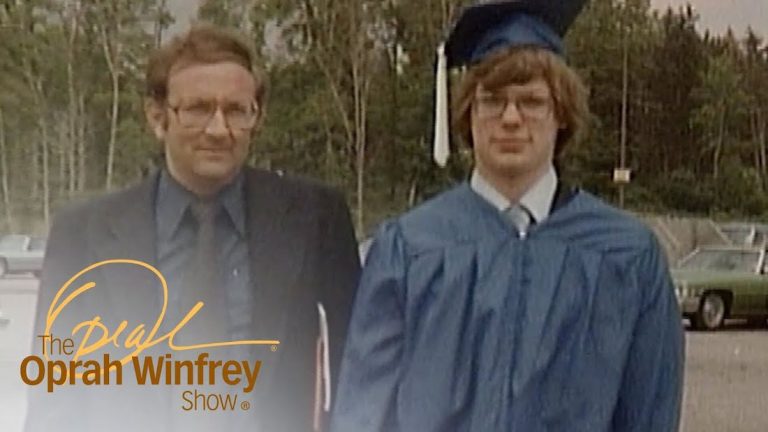
No one ever asked us who we >> didn’t << want to be.
New York, N.Y. –– In the hallowed halls of high school, amidst the hormonal haze and the existential dread of algebra class, we were often asked the Big Question:
“Who do you want to be when you grow up?”
It was a question designed to spark dreams, to ignite ambition, to encourage us to see beyond our acne-ridden present and into a future brimming with boundless possibilities. We conjured images of ourselves as titans of industry, groundbreaking scientists, or maybe, just maybe, the next Babe Ruth. Neil Armstrong, fresh off his moonwalk, was a popular choice. A few starry-eyed classmates even dared to whisper, “President of the United States,” though most of us suspected they’d peak at student council treasurer.
But looking back, I realize there was a glaring omission in this exercise of adolescent aspiration.
No one ever asked us who we didn’t want to be.
Perhaps that would have been the more revealing inquiry. While dreaming of emulating the greats is all well and good, a healthy dose of “avoiding the abyss” can be just as powerful a motivator. After all, not everyone is destined for the White House or the Yankees dugout, but most of us have a reasonable shot at steering clear of becoming, say, the guy who has to mop up the peep show booths in Times Square.
Had we been asked to list the career paths or life outcomes we most desperately wanted to avoid, my personal list would have been short but potent. Right at the top, nestled somewhere between a telemarketer and the guy who designs those impossibly tiny airline liquor bottles, would be Jeffrey Dahmer’s father. Talk about a legacy nobody wants to inherit. Imagine the family reunions:
“Hey, Lionel, how’s your boy doing?”
“…Oh, you know. Keeping busy.”
But even that pales in comparison to the sheer existential horror of being that other individual. You know the one. The individual who, through the sheer happenstance of their chosen profession, finds themselves forever linked—through no real fault of their own—to a figure of grotesque historical infamy. The individual who, despite their rigorous education, impeccable qualifications, and presumably decent moral compass, ended up in the unenviable position of having to routinely perform medical examinations on Donald Trump.

Yes, I’m talking about the unfortunate soul who, in their youthful optimism, probably once dreamed of a noble career in medicine—perhaps curing cancer or making groundbreaking discoveries in gastroenterology—only to find themselves, years later, crouched in a sterile room, wearing latex gloves, whispering a silent prayer to the gods of Clorox.
Let’s call this tragic figure “Individual No. 45’s Medical Specialist.” Donald Trump’s proctologist.
Now, I’m not saying this esteemed professional isn’t a highly skilled and dedicated practitioner. I’m sure they’ve logged countless hours studying the intricacies of the human plumbing. I’m also fairly certain they possess a level of mental fortitude that would make a Navy SEAL weep with envy. But still, let’s be real—nobody walks across the stage at medical school graduation dreaming of this fate. No one picks up their diploma thinking, “One day, I will achieve greatness by exploring the darkest, most unholy depths of an ex-president’s lower gastrointestinal tract.”

And yet, somewhere out there, this person exists. They wake up in the morning, pour their coffee, and know that in just a few hours, they will be engaged in the most thankless and viscerally unpleasant medical examination in American history. I imagine they have a dedicated stress-relief room in their office, complete with a punching bag, a shrine to Fauci, and an industrial-strength vat of Purell.
And what, pray tell, do they say at dinner parties when someone inevitably asks, “So, what do you do for a living?”
Do they dodge the question? Do they lie? Do they give a cryptic half-answer like, “I work in… public health” and then immediately excuse themselves to get another drink? Or do they just stare into the distance, eyes hollow, replaying the unspeakable horrors they have witnessed?
Whatever the case, the mere thought of their predicament makes me deeply grateful for my own life choices. Because if nothing else, I have successfully avoided becoming that person.
And maybe, just maybe, that’s a valid life goal in itself.
After all, we tend to focus so much on emulating the heroes of history—striving to be the next Einstein, the next Oprah, the next Serena Williams—that we forget how much of success is simply about steering clear of the truly terrible. The choices we make are often just as much about what we reject as what we embrace.
So while my classmates were busy practicing their baseball swings and perfecting their presidential handshakes, I was quietly vowing to stay far, far away from anything that would put me at risk of a Dahmer-adjacent family dinner or an unsolicited encounter with Donald Trump’s posterior.
And you know what? I think I’ve done alright.
Not every life needs a moon landing. Sometimes, dodging a cosmic horror is achievement enough.